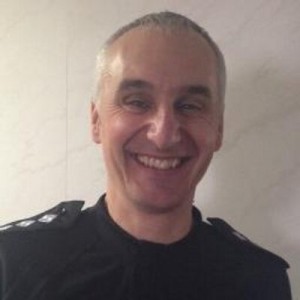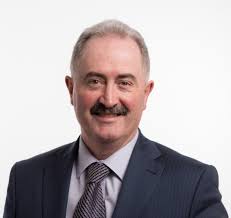More people with mental health problems were held in police cells as a place of safety in Brighton alone than in the whole of London last year.
The figure for Brighton was 157 in the 2014-15 financial year, compared with 20 for the whole of the Metropolitan Police.
But a few weeks ago Sussex Police started a three-month trial in Brighton and Hove to try to address the issue, commissioned by NHS England.
The force as a whole made significantly more use of police cells as a place of safety under section 136 of the Mental Health Act last year than any other police force.

There were 765 such detentions in Sussex while only three other police forces around the country detained more than just the Brighton and Hove division of Sussex Police.
The area has a higher proportion of people with mental health problems than many other places. Some of those are drink and drug-related. But that doesn’t explain all the section 136 detentions.
The force said that the numbers were falling. And the high numbers reflected the compassion shown by Sussex officers when dealing with distressed people. But the force also readily concedes that the situation is far from ideal.
A police cell is often not the best place for someone suffering a mental health crisis, it can delay the start of any treatment and it costs money.
The Home Office estimated that the average cost of a section 136 detention was £1,300.
A scheme that was piloted in Eastbourne last year to tackle the situation has brought the numbers down and has been taken up in other parts of the force.
Brighton and Hove is the latest place where the scheme – known as street triage – is being tried out.
It involves a mental health nurse going on patrol with officers on a Friday and Saturday night.
Similar schemes in Eastbourne, Worthing, Chichester, Crawley, Horsham and Hastings run seven days a week.
Street triage is a joint project involving Sussex Police and the Sussex Partnership NHS Foundation Trust, which looks after people with mental health problems.
Chief Inspector Dave Padwick, from the Brighton and Hove division of Sussex Police, said: “We’ve done our own dip check of incidents that Brighton and Hove police attend and in 24 per cent of the calls that our officers attend, a mental health cause was underlying it.

“We were well aware of the high proportion of individuals in mental health crisis who ended up in police cells. In law they are designated as a place of safety.
“I’m very passionate that a police cell is not the right place for them to be in the vast majority of cases unless they are violent.
“It is first and foremost about the individual in crisis. The last I want to do or my officers want to do is put someone in a police cell that is used for someone who is suspected of committing a crime. “Think what might do for them. I’m very uncomfortable with that.
“A secondary consideration is the demand on police resources and budgetary constraints but it is very much a secondary concern.
“This is about doing the right thing for people in mental health crisis.”
Chief Inspector Padwick said: “We can’t solve this on our own. We need to work in partnership with our colleagues in the mental health service, the Health and Wellbeing Board and the CCG.
“As a result of closer working there’s been an improvement in the support my officers get from mental health services in to city.
“We’ve also worked very hard to improve our relationship with Mill View Hospital.”
New protocols for dealing with people with mental health problems who were drunk or violent were agreed earlier this year.
As a result more people are held in a specialist section of Mill View Hospital, in Hangleton, and in similar hospitals around the county.
Chief Inspector Padwick reeled off some numbers. He said: “In January 14 people were detained in police cells in Brighton and 15 were detained at Mill View.
“In February 13 people were detained in police cells in Brighton and 17 were detained at Mill View.
“In March 13 people were detained in police cells in Brighton and 22 were detained at Mill View.
“In April 10 people were detained in police cells in Brighton and 23 were detained at Mill View.”
He said that the trend showed how well the new arrangements were working for those who needed the care of mental health experts.
When it comes to the street triage patrols, he said: “We provide the car and officer and Sussex Partnership provides a mental health nurse with access to their system.
“We’ve really improved our information sharing. It’s not about telling tales. It’s about keeping people safe – and that’s the very essence of what we’re here to do which is keep people safe.
“Our absolute focus is for that figure (the number of people detained in police cells under section 136) to be zero.
“And that’s the same for our colleagues in health because that’s right for the person in crisis. It may not be possible but it’s our aim.
“At any incident they attend, the nurse will guide the officer if someone appears to be suffering from a mental health problem. Our officers aren’t trained in mental health.”
Sussex Partnership said: “Nurses join police on rounds and attend calls with them where mental health might be a factor.
“They assess the person and if they feel that person needs support, advice or help they can give that on the spot where appropriate or direct them to the right service to get the help they need.”
Sussex Partnership chief executive Colm Donaghy said: “With our mental health nurses joining police on the beat, we can make sure that everyone gets the care and treatment they need as quickly as possible in the right place for them.”
Professor Gillian Bendelow, from Brighton University, and Claire Warrington, from Sussex Partnership, have been carrying out research about section 136 detentions.
They worked with Sussex Police and Sussex Partnership to look at the high rates of detention, often in police custody, of severely distressed individuals under section 136.







